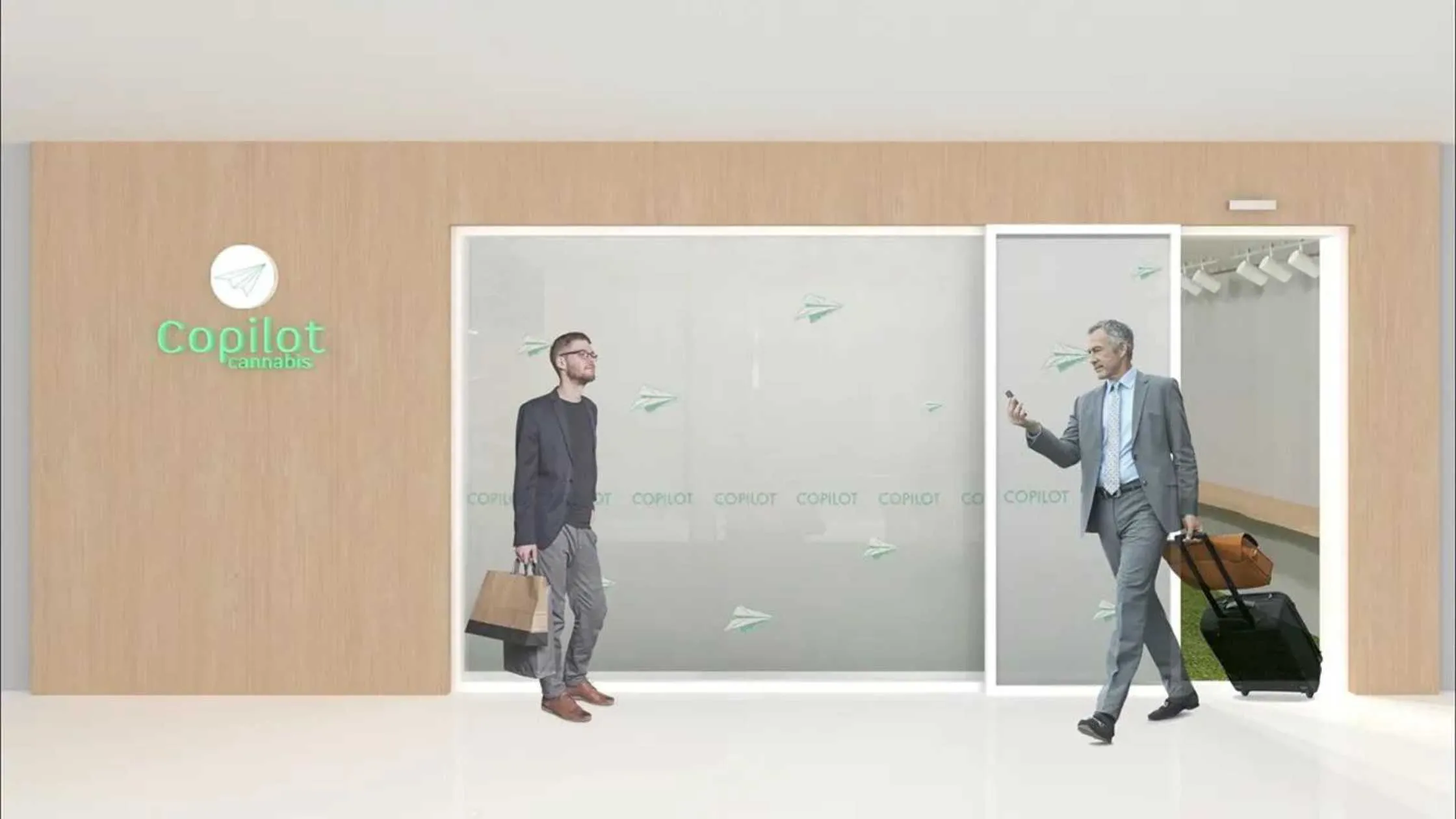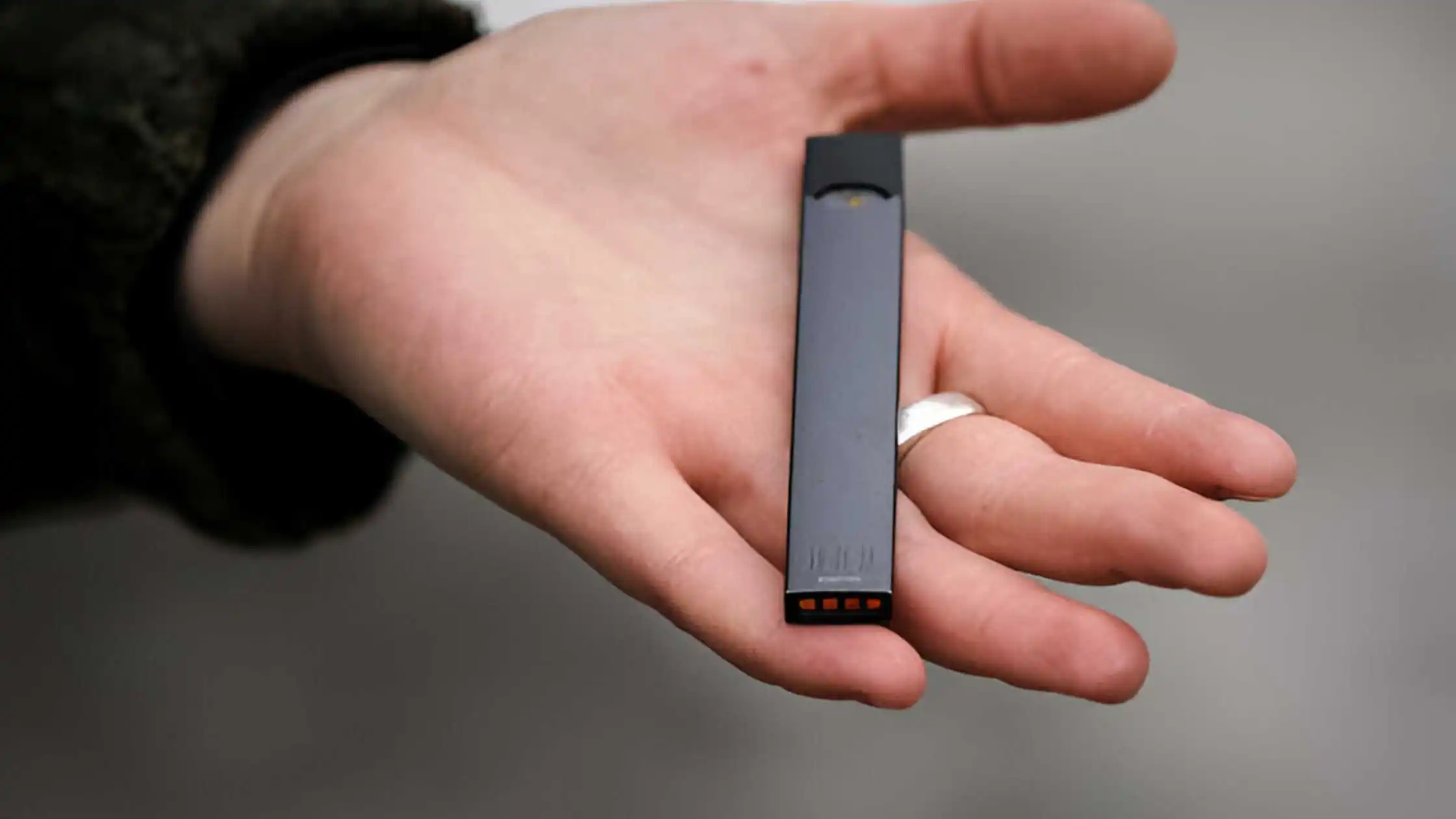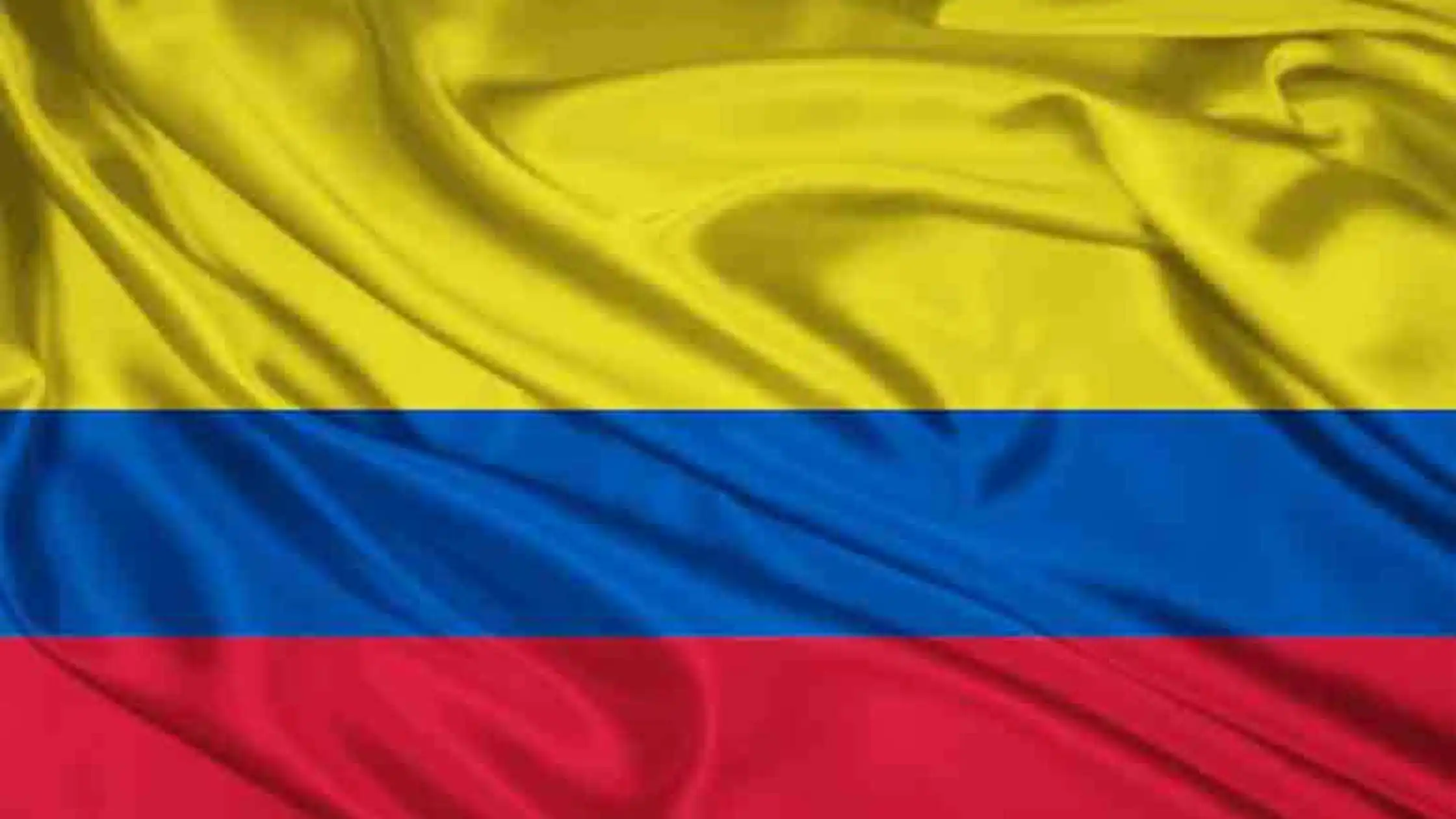A rendering of the Copilot cannabis store planned for Prince George’s Airport in British Columbia. (Image courtesy of Copilot)
The Prince George’s Airport in British Columbia is one step closer to hosting what reportedly would be the world’s first in-airport cannabis store.
The Prince George’s City Council voted in favor of the store’s land-use application at a public hearing on Monday night.
Retail brand Copilot plans to open its airport terminal store by the beginning of summer, said co-founder Owen Ritz, pending further government approvals and store construction.
“We think that one potential segment is customers who are looking to purchase cannabis products and potentially consume them before traveling,” Ritz told MJBizDaily.
“It’s not necessarily because we view cannabis as a way to get intoxicated before traveling – it’s that cannabis is a product that people use to relieve stress, and travel is a stressful experience, and it’s a practice that already exists.”
Other potential customers include arriving travelers looking to pick up cannabis before heading to their final destination in B.C., Ritz added, as well as curious travelers who might not ordinarily visit a cannabis store.
“We view being in an airport as an opportunity to do that, to introduce our brand, and cannabis retail in general, to any type of customer.”
Cannabis consumption area planned
The Prince George Airport Authority (PGAA) publicly announced the planned cannabis retailer in January.
Ritz said he and fellow Copilot co-founder Reed Horton originally pitched the airport on the retail concept nearly two years ago, gaining PGAA’s approval and support.
The single-terminal regional airport served nearly 500,000 passengers in 2019 before the COVID-19 pandemic and zapped air travel.
The store will be centrally located in the airport, between the check-in hall and the security checkpoint.
“It will essentially be 10 meters from the door when you walk in as a customer to go check in to your flight, or it will be about 50 meters from where people exiting the airport would be leaving,” Ritz said.
Copilot said in its Monday night presentation to the City Council that the store wouldn’t sell to “airport or airline staff on shift, or identifiable as such,” or to travelers with international transits or final destinations.
Air travelers may legally bring cannabis on domestic Canadian flights.
The Prince George Airport is a nonsmoking zone.
However, the airport plans “a designated cannabis consumption area for the responsible consumption of cannabis products,” PGAA President and CEO Gordon Duke told the City Council at the Monday night hearing.
“This is in line with what you see happening at other Canadian airports – Vancouver, Kelowna, Calgary are three that you might have traveled through, and they have cannabis consumption areas,” Duke said.
Airport retail challenges
Alan Bork, owner of Copenhagen, Denmark-based Airport Retail Consulting, expressed some skepticism about the business case for airport cannabis retail.
According to Bork, airport shoppers tend to be driven by the following:
- Convenient outlets that fill their immediate needs.
- Saving money at duty-free stores.
- Killing time.
Bork said he’s unsure whether a cannabis store would fit into those shopping motivations.
“Especially not the convenience thing, if (cannabis is) easy to come by … outside the airport,” Bork said.
“Certainly, to begin with, the curiosity factor will be important,” he added.
For cannabis retailers considering an airport location, Bork said the most advantageous location is “as soon as possible after security” in the departures area.
“That feedback is spot on for 95% of airports, especially airports with major retail operations, like Toronto or Vancouver,” Copilot’s Ritz responded.
But at the more compact Prince George Airport, he said, passengers “aren’t instructed to go into the post-security area until closer to their flight,“ leaving opportunities for shopping.
Airport retail expert Bork said he does see a case for cannabis as a category in airport duty-free stores.
“Next to the liquor shelves, if you like — that could be a model,“ he said.
“And certainly, I believe, a model that would bring more sales turnover than if you have a separate shop with this one product.”
Duty-free cannabis sales, however, would require international destinations that allow travelers to bring marijuana into the country. Even Canada, where cannabis is federally legal, currently prohibits travelers from entering or exiting the country with the drug.
Ritz said that the possibility of future duty-free airport cannabis sales is “less of a risk and more of an opportunity“ for Copilot’s business model.
“I think that there is a risk of other, larger operators being able to sell cannabis products, whether it’s liquor stores, duty-free stores or other established travel retailers,“ he added.
“But our goal is to create a travel-focused brand catered to cannabis and travel.”
That could eventually include producing and selling products “specifically catered to the needs of a traveler, rather than just any other commodity cannabis products.“
In the meantime, Ritz said Copilot plans to launch its inaugural store “and work out some of the inevitable difficulties of opening up and operating an airport“ before expanding to other airports.
Right now, the retail brand is mainly focused on Canada, he said, in light of the federal cannabis prohibition in the United States.
“Currently, the regulations surrounding (U.S.) airports are that federal rules still govern them,“ he said.
“So, even if you were flying from (Los Angeles) to (San Francisco), you couldn’t legally have a cannabis store.”
Disclaimer: https://mjbizdaily.com/canada-could-offer-worlds-first-in-airport-cannabis-store





